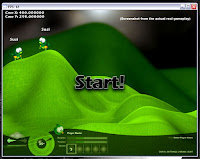Posted by Chris Sacca, Head of Special InitiativesFor several years now, many Googlers have been working to identify
the obstacles that prevent the Internet from being available to everyone on the planet. It strikes us as unfair that some people
should enjoy such abundant access to this rich resource while billions of others aren't so lucky. Though the technology exists today to provide access on a global scale, often we have learned technology isn't the problem. In this context, we have worked hard to advance a set of principles that will make Internet access for all a priority.
For instance, we wrote
last week on our Public Policy Blog about Google's interest in promoting competition in the broadband market here in the U.S., to help ensure that as many Americans as possible can access the Internet. However, it takes more than just ideas and rhetoric if you want to help bring the Internet to everyone.
So today, we're putting consumers' interests first, and putting our money where our principles are -- to the tune of $4.6 billion. Let me explain.
In the U.S., wireless spectrum for mobile phones and data is controlled by a small group of companies, leaving consumers with very few service providers from which to choose. With that in mind, last week, as the federal government prepares for what is arguably its most significant auction of wireless spectrum in history, we
urged the Federal Communications Commission (FCC) to adopt rules to make sure that regardless of who wins the spectrum at auction, consumers' interests are the top priority. Specifically, we encouraged the FCC to require the adoption of four types of "open" platforms as part of the auction:
- Open applications: consumers should be able to download and utilize any software applications, content, or services they desire;
- Open devices: consumers should be able to utilize their handheld communications device with whatever wireless network they prefer;
- Open services: third parties (resellers) should be able to acquire wireless services from a 700 MHz licensee on a wholesale basis, based on reasonably nondiscriminatory commercial terms; and
- Open networks: third parties (like Internet service providers) should be able to interconnect at any technically feasible point in a 700 MHz licensee's wireless network.
As
numerous public interest organizations noted earlier this week, all four of these conditions adopted together would promote a spirit of openness, and could spur additional forms of competition from web-based entities, such as software applications providers, content providers, handset makers, and ISPs. The big winners? Consumers. As choices increase, prices come down and more Americans have access to the Net.
The FCC is currently considering draft rules for the auction, and the reports we've heard are that those rules include some -- but not all four -- of the openness conditions that we and consumer groups support. While any embrace of open platforms is welcome, only if the FCC adopts all four principles will we see the genuinely competitive marketplace that Americans deserve. In particular, guaranteeing open services and open networks would ensure that entrepreneurs starting new networks and services will have a fair shot at success, in turn giving consumers a wider choice of broadband providers.
There are some who have claimed that embracing these principles and putting American consumers first might somehow devalue this spectrum. As much as we don't believe this to be the case, actions speak louder than words. That's why our CEO Eric Schmidt today sent a
letter to FCC Chairman Kevin Martin, saying that, should the FCC adopt all four license conditions requested above, Google intends to commit at least $4.6 billion to bidding for spectrum in the upcoming 700 Mhz auction.
Why $4.6 billion? While we think that a robust and competitive auction based on these four principles will likely produce much higher bids, and we are eager to see a diverse set of bidders competing, $4.6 billion is the reserve price that FCC has proposed for the auction. With any concerns about revenue to the U.S. Treasury being satisfied, we hope the FCC can return its attention to adopting openness principles for the benefit of consumers.
In the meantime, thank you to those who have reached out to help with our efforts. It feels good to see how many of you support true competition for the benefit of consumers and we look forward to hearing from even more of you in the days to come.
For now, and for all of us, the issue is simple: this is one of the best opportunities we will have to bring the Internet to all Americans. Let's seize that opportunity.
Note: We've cross-posted this to our Public Policy Blog.























